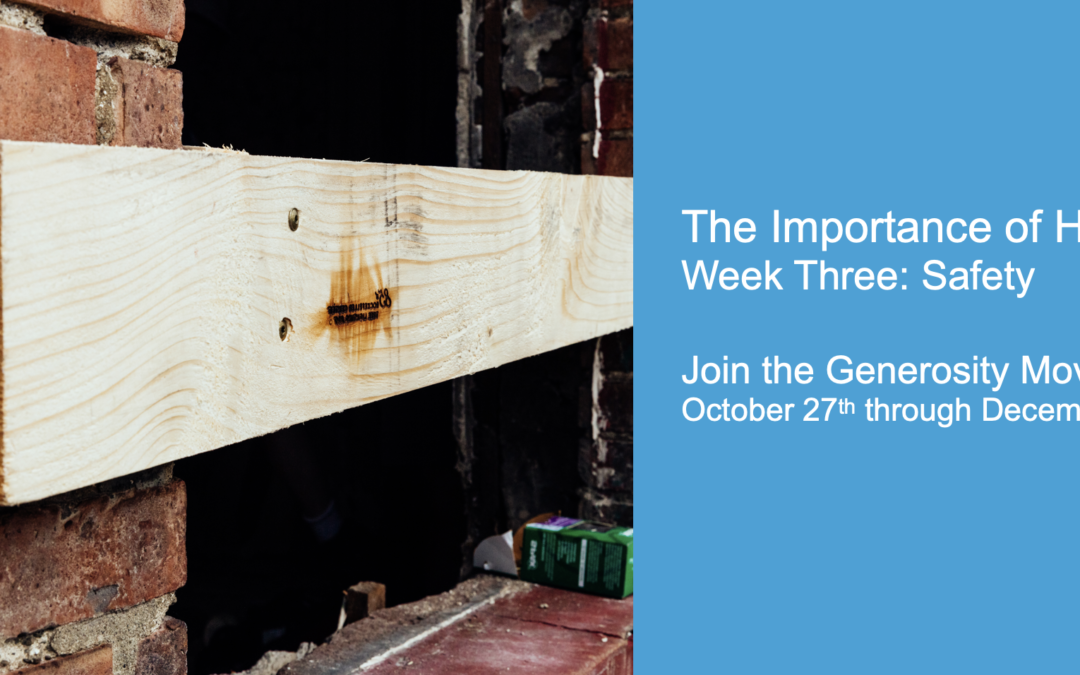Week Three: Safety
Week three focuses on safety and how a Habitat home can make all the difference in the lives of a family.
Imagine living without doors, locks, or privacy. Imagine living in high-density buildings during a pandemic, where nothing is clean or safe. Windows don’t open and vents circulate stale air. Hallways are crowded and neighbors are volatile. Landlords are absent, dishonest or overwhelmed.
Now imagine coming home to your own house, where your children have room to study in and a yard to play in, amid a neighborhood that shows pride of ownership and a sense of community.
By supporting Habitat this week, you are making sure that we are able to continue partnering with families to create safe homes in decent neighborhoods. Your support can take on many roles: financial contributions, donation of time by committing to a long-term volunteer schedule, advocate for Habitat by sharing with others through social media and outreach, serving on committees, shopping at our ReStore locations and donating furniture and building supplies, too.
Click the links to learn more: DONATE – VOLUNTEER – ADVOCATE – DONATE TO A RESTORE
read more:
Across the globe, Habitat for Humanity is committed to creating safe places for families to call home.
In different parts of the world, different factors can affect a family’s sense of safety. For some, a Habitat home includes something they have never had before: a front door that locks and the sense of security that comes with it.
For others, moving into a new home they have helped build or making much-needed repairs to their existing home can address hazards they have had to live with for too long. The estimated direct and indirect health care cost of illnesses and injuries caused by inadequate housing conditions is in the tens of billions of dollars, according to the U.S. Department of Housing and Urban Development’s Healthy Homes Initiative.
“Home should be a source of happiness and hope. Home should offer a safe and stable environment. Home should help, not hinder, a person’s ability to thrive.” — Shaun Donovan, former U.S. Secretary of Housing and Urban Development
Putting down roots, renovating property and investing in communities also helps entire neighborhoods grow and become safer for everyone. Neighborhoods where residents stay put for a long time tend to be associated with lower crime rates, according to the U.S. Department of Housing and Urban Development.
Communities and networks of support form whenever residents come together to build and improve the places they call home.
(link to original article)

